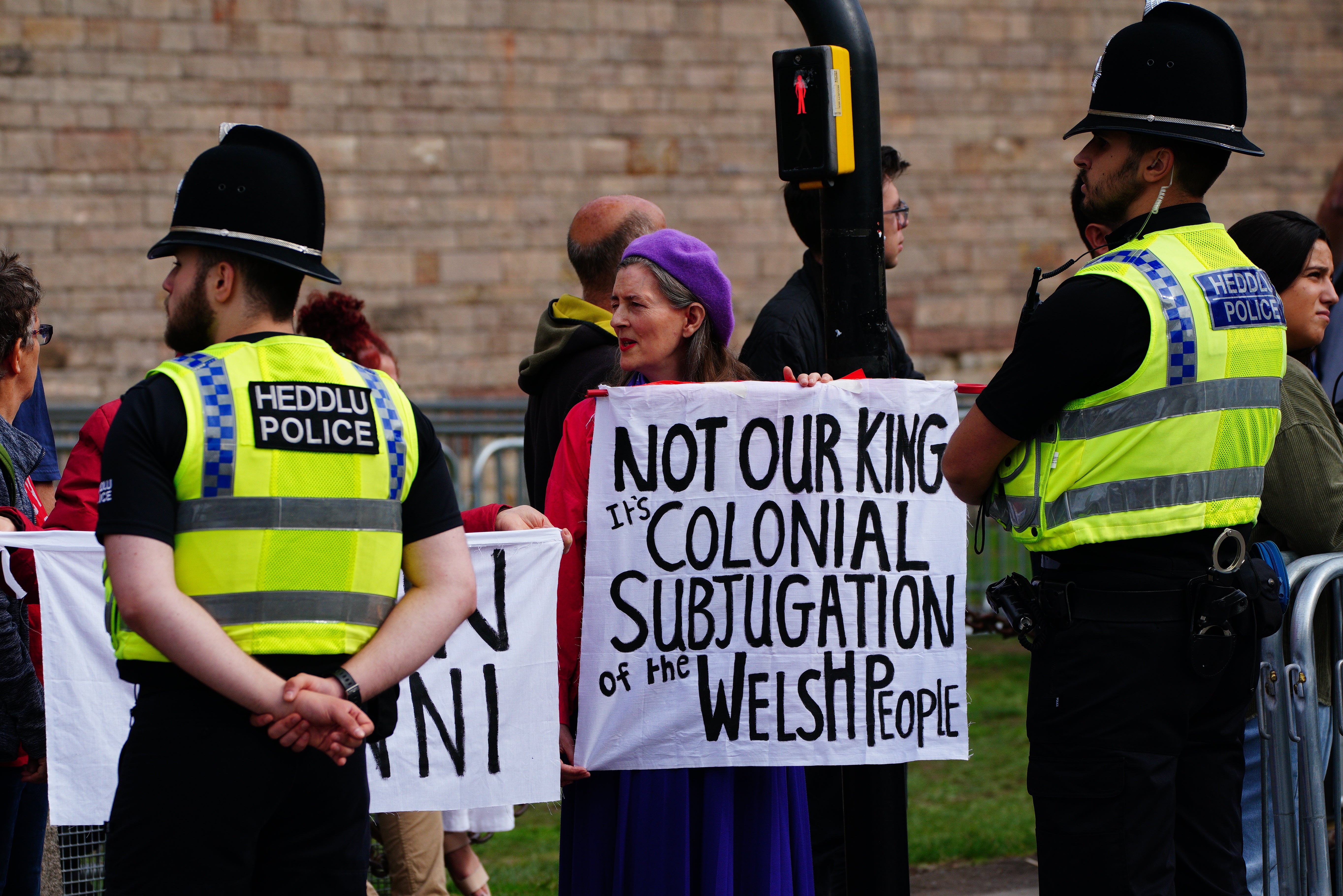Man said he was warned he risked arrest if he wrote ‘not my King’ on placard
Paul Powlesland said he was initially ‘scared’ but was now ‘more inclined … to protest to uphold our rights’.

A man who said he was told by a police officer that he risked being arrested if he wrote “not my King” on a placard in London now feels “more inclined to go out there and to protest to uphold our rights”.
Paul Powlesland, 36, a barrister and nature rights activist from Barking in east London, travelled into the centre of the capital on Monday afternoon with “a blank piece of paper”.
He told the PA news agency: “I went down there because I’ve been increasingly concerned by people who are just, you know, exercising rights to freedom of speech, being either arrested or threatened with arrest by the police.
“I actually couldn’t risk arrest as I’m due to be in tribunal (on Tuesday). So I just thought I’d take a blank piece of paper down there.
“Partly, as a comment as well on the lack of freedom of speech and how ridiculous it is. So I held that up and various police officers spoke to me and I tried to find out from some of them, whether if I wrote, ‘not my King’ on it, they would arrest me.
“They didn’t know or wouldn’t say, and then I went for a little walk around and went down towards Downing Street. And then that officer came up to me and began that conversation effectively asking for my details and then saying, if you write ‘not my King’ on it, then we may well arrest you for public order offences, being offensive.”
My Powlesland recorded part of his interaction with the officer and shared it on social media, where it was viewed more than 700,000 times in around four hours.
“Why would you ask for my details?” he can be heard asking the officer, who said “I wanted to make sure you didn’t have bail conditions (inaudible).”
The officer replied: “You said you were going to write stuff on it, that may offend people, around the King. It may offend someone.
“Who’s that going to offend?” asked Mr Powlesland.
“I don’t know, someone may be offended by it,” replied the officer.
The Met’s Deputy Assistant Commissioner Stuart Cundy said: “We’re aware of a video online showing an officer speaking with a member of the public outside the Palace of Westminster earlier today.
“The public absolutely have a right to protest and we have been making this clear to all officers involved in the extraordinary policing operation currently in place and we will continue to do so.
“However, the overwhelming majority of interactions between officers and the public at this time have been positive as people have come to the Capital to mourn the loss of Her Late Majesty the Queen.”
The arrests of anti-monarchy protesters after the death of the Queen have been described as “deeply concerning” and an “affront to democracy” by free speech and human rights campaigners.
Since the proclamation of King Charles III, at least three arrests have been made in Scotland and Oxford on suspicion of breach of the peace and public order offences.
Mr Powlesland said he was not arrested, but added that his interaction had only strengthened his feelings.
“It feels like a very odd time, when there does seem to be… using the respect that is due to the Queen and her death, as a way of silencing any dissent over Charles’s accession,” he said.
“The officer himself was from Norfolk Police. And I basically said, you know, maybe go back to Norfolk, and actually do what you’re supposed to do as a police officer, protecting ordinary people from crime, rather than messing around and telling people what they can and can’t have on signs in London.
“Initially, these things make you feel scared, but afterwards, it actually makes me feel more inclined to go out there and to protest to uphold our rights.
“I’m not actually a republican, or I wasn’t before this week. Like most British people, I was vaguely ambivalent to the monarchy. But this week, and what’s been happening, has made me republican.
“One of the many things that makes me proud to be British is our freedom of speech. It’s one of our most precious and sacred rights and it’s far more precious to me than the royal family is.”
Bookmark popover
Removed from bookmarks